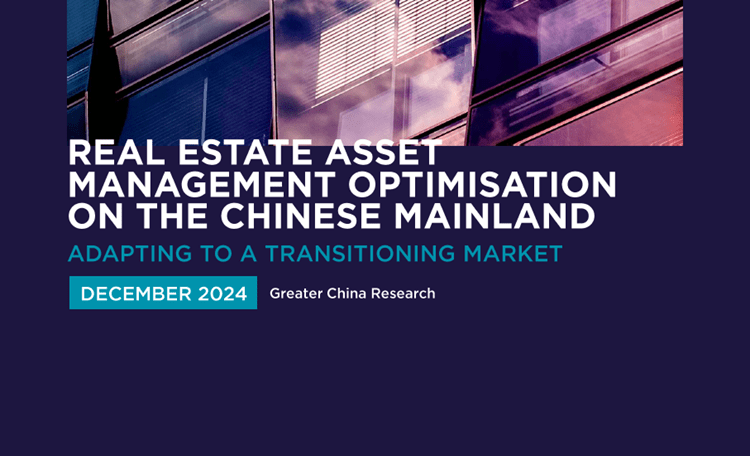Cushman & Wakefield today released its annual Greater China Retail Supply/Demand Trends report. According to the report, by Q2 2024, the total prime retail property stock in the core markets in the 16 major cities in Greater China we track totaled 112.5 million sq m. Additionally, during the past year, demand for prime retail space in China continued to be active. Therefore, the overall vacancy rate seen in the 16 major cities in Greater China decreased to 10.6% in Q2.
Duke Zhen, Managing Director, Head of Retail Services, China, Cushman & Wakefield, said, “In recent years, new types of consumption such as digital consumption, green consumption and health-related consumption, as well as new consumption growth points like smart home equipment, culture and entertainment, tourism, sports events and “Guochao” goods and products, have emerged and flourished vigorously in China. The rise of new types of consumption has not only driven the upgrading of consumption structures but has also demonstrated the strong resilience and vigorous vitality of China’s retail market.”
On the policy front, the Third Plenary Session of the 20th CPC Central Committee emphasized the importance of actively expanding domestic demand, accelerating the development of a complete domestic consumption demand system, improving the long-term mechanism for expanding consumption, and establishing a sound incentive mechanism for green consumption. In view of this, China's service consumption is expected to maintain sound development momentum into the future as new types of consumption will continue to emerge.
Shaun Brodie, Head of Greater China Research Content, Cushman & Wakefield, said, “China's series of policies aimed at expanding domestic demand and promoting consumption have continued to gain momentum and effectiveness, with the country’s retail market showing a sustained trend of recovery in 2024. As service consumption and new consumer demands continue to grow, the Chinese market still holds large consumption potential that remains to be tapped. To meet the increasingly diverse and personalized needs of consumers, the retail industry is constantly introducing new business models, commercial scenarios, service offerings, and retail formats."
Retailers and landlords of shopping centers are actively embracing these changes by introducing new technologies, new retail formats, and new models to continuously improve service and shopping experiences. In terms of supply and demand, the main focus trends this year are as follows:
- Traditional commercial retail project upgrading
- Retail property C-REITs
- Cultural and tourism consumption
- Green consumption
Global economic weakness and domestic economic slow-down should lead to more cautious spending. However, in consideration of the increasing disposable income and the sustained demand for upgraded goods consumption, the outlook for the level of retail market growth is that it is expected to continue to remain in positive territory.
Beijing Market
By the end of H1 2024, the total stock in Beijing's retail market was 17.3 million sq m, of which shopping centers recorded 15.5 million sq m.
The overall consumer market remains soft in the face of downward economic pressure. Although customer footfall has rebounded a lot over the past year, the overall consumption power remains subdued. As of H1 2024, the average asking rental in the city dropped slightly to RMB2,200 per sq m per month, and the vacancy rate rose slightly to 10.6%.
Approximately 600,000 sq m of new supply is scheduled to enter the market in H2 2024. With the support of consumption and investment policies, membership stores will also continue to expand. In 2024, Beijing will continue to promote the establishment of an International Consumption Centre City, and with the support of related policies, the upgrading of commercial projects, city blocks, and submarkets will remain the main theme for the development of the retail market in the city.
Shanghai Market
Overall, strong economic fundamental momentum rendered support to the growth of Shanghai’s retail property market over the past year. 27 shopping centers were completed in H2 2023 and H1 2024, bringing the city’s prime retail stock to approximately 23.4 million sq m.
Shanghai’s prime retail property market continued to see the average vacancy rate drop, in spite of a large amount of new supply entering the market during the past year. By the end of Q2 2024, the overall vacancy rate for Shanghai’s mid- to high-end shopping centers decreased to 9.32%, down 0.06 percentage points q-o-q and 0.26 percentage points y-o-y. This is the lowest vacancy rate for Shanghai’s prime retail property market since 2022, demonstrating an unabated growing demand for prime retail space from many brands.
Looking to the future, more than 1.2 million sq m of new retail space is scheduled for H2 2024. As emerging areas continue to develop, the average rent for Shanghai retail property is expected to dip as new projects within these areas complete.
Shenzhen Market
The opening of KK Time and Uniway during H2 2023 to H1 2024 pushed Shenzhen’s total prime retail stock to 6.6 million sq m.
The retail sector accelerated its recovery, with the opening of more shops in shopping centers than F&B outlets over the past year. A combination of positive factors drove the citywide vacancy rate down 0.6 percentage points from H1 2023 to 8.4%, a record low since Q2 2022. Prime space rental levels subsequently rose for a second consecutive quarter to RMB812.1 per sq m per month, reflecting the positive attitude that landlords have towards the market.
Shenzhen is expected to add 1.2 million sq m of new supply through to the end of 2025. Luxury brands are expanding, while more shops with innovative elements and unique experiences are set to open. With a more proactive strategy of opening up and the improvement in infrastructure, tourists from other countries and from the western side of the Pearl River Estuary are expected to be the new driving forces behind the growth of Shenzhen's consumption. The trade-in of old consumer goods, the diversification of consumption scenarios and the optimization of the business environment may also help to boost consumption demand and activate market players.
Guangzhou Market
Guangzhou added 683,000 sq m of new prime retail supply during the past year, with emerging submarkets taking 75% of the space, bringing the city’s prime retail stock to 5.6 million sq m.
Footfall and consumer demand rebounded significantly. Prime shopping centers in core submarkets with superior locations and strong operational capabilities continue to be the first choice for tenants when opening new stores, and vacancy rates in core submarkets remain low. The city's prime shopping center vacancy rate rose by 1.1 percentage points y-o-y to 7.3% due to the large amount of new supply in non-core submarkets.
Guangzhou is expected to add 1.3 million sq m of new supply through to the end of 2026. The accelerated construction of new projects and the renewal of existing projects will help Guangzhou develop into a multi-core business district system. In addition, Guangzhou has also issued guidelines on diversifying consumption scenarios and introducing first-in-market shops this year, to further promote the cultivation of an International Consumption Centre City.
Chengdu Market
Over the past year, Chengdu's prime retail market has seen the addition of two new projects, increasing the city's total stock to over 8.19 million sq m. The opening of Tianfu Joy City not only filled the commercial gap near the Tianfu Business District but also spurred the formation of a new commercial hub in Tianfu New Area.
Chengdu's prime retail property stock now exceeds 8 million sq m, ranking just behind Beijing and Shanghai. The competition is intense, prompting traditional operators to transform their properties. For instance, Cosmo has been rebranded as a trendy hotspot, and Sinohydro Vary International has been converted into an outlet mall. It is anticipated that more traditional and outdated properties will undergo similar transformation and upgrading in the future.
Currently, the development of traditional commercial properties in Chengdu has stabilized. Over the next few years, the supply of high-quality shopping centers is expected to slow down. Future commercial supply in Chengdu will primarily consist of non-standard commercial properties, community businesses, and neighborhood centers that cater to residents' daily needs.
Hangzhou Market
Over the past one year, Hangzhou has made an effort to boost the economy and stabilize growth by promoting consumption-boosting initiatives. Accordingly, the city’s economic activity continued to recover steadily, with some fields showing noticeable improvement. Among them, the consumer market continued to recover, and the volume and quality of consumption was relatively active.
Nine commercial projects, with a combined area of approximately 865,000 sq m of new retail space, opened in Hangzhou last year. Meanwhile, both internal and external upgrading and renovation has continued. For example, Hangzhou Tower launched a comprehensive brand image enhancement and transformation, and Jinsha Paradise Walk welcomed the reopening of its recently renewed themed food and beverage space.
In terms of policy, Hangzhou’s “Several Measures on Further Promoting the Linkage of Performance Arts, Sports Events, Exhibition, Commerce and Tourism to Create a Game City and Shopping Paradise” was officially released in June, aiming to cultivate new consumption types and stimulate consumption potential, and accelerate the construction of an International Consumption Centre City.
Hong Kong Market
Despite the fact that Hong Kong has fully reopened its border since early 2023, the changed consumption patterns of mainland visitors and the trend of local residents spending northbound has slowed local retail sales in 1H 2024, with most key retail trade categories recording year-on-year declines.
Nevertheless, inbound tourist numbers continued to recover, supporting stable leasing demand from retailers. Overall high street vacancy rates remained largely stable, with the market witnessing leasing activities by international brands in core areas. The overall high street vacancy rate averaged at 7.8% in Q2, with rents increased by low single-digits across districts year-to-date.
Looking ahead, given the structural changes in spending habits of inbound tourists and local residents, retailers are expected to remain cautious. We believe leasing demand in H2 will be mainly driven by mainland retail and F&B chains, while H2 retail high street rents across districts are forecast to grow by 0% to 5%. With the Central Government announcing supportive measures that benefit the city’s retail market, as well as local government initiatives to promote the mega-event economy, we expect to see overall improving footfall and consumption in H2.
Taipei Market
The post-pandemic era began in H1 2023, with the annual number of tourists visiting Taiwan reaching half of the pre-pandemic (2019) levels, indicating a gradual return of foreign tourists to the retail hubs. While the market still primarily relied on domestic demand, overall consumer spending strengthened. During H2 2023, retailers regained confidence, leading to consecutive new commercial project openings and filled vacancies.
By Q2 2024, the vacancy rate in Ximen had fallen to 3.5%, marking eight consecutive quarters of reduction. Zhongxiao experienced increased crowds due to regular baseball games at the Taipei Dome, resulting in a 12.3% vacancy rate. The vacancy rate in Zhongshan-Nanjing has returned to its pre-pandemic low of 3.3%.
Tourist numbers in 2024 are anticipated to nearly reach pre-pandemic levels, with a steady return of foreign visitors. The economy remains stable, and consumer activity has normalized. Moreover, a renewed focus on physical shopping has prompted e-commerce brands to open physical stores and expand into retail hubs.
Please click here to download the full report.
About Cushman & Wakefield
Cushman & Wakefield (NYSE: CWK) is a leading global commercial real estate services firm for property owners and occupiers with approximately 52,000 employees in nearly 400 offices and 60 countries. In 2023, the firm reported revenue of $9.5 billion across its core services of property, facilities and project management, leasing, capital markets, and valuation and other services. It also receives numerous industry and business accolades for its award-winning culture and commitment to Diversity, Equity and Inclusion (DEI), sustainability and more. For additional information, visit www.cushmanwakefield.com.



